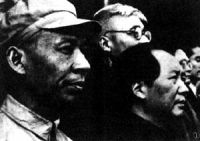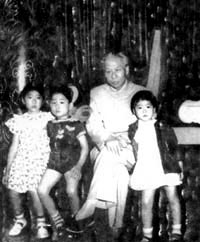Liu Shaoqi
Liu Shaoqi, former vice chairman of the Central Committee of the Communist Party of China and chairman of the People' s Republic of China was born in 1898 in Ningxiang, Hunan province. He participated in the May Fourth Movement in Baoding in 1919 and was one of the major leaders and organizers of the Chinese labor movement. Liu joined the Communist Party when he studied at Moscow East University in 1921 and then later worked in Shanghai and Guangzhou. He also led and participated in the famous May 30 Movement and Great Strike of Guangzhou and Hong Kong. He was elected as a member of the Chinese Communist Party Central Committee in 1927 and as a member of the Political Bureau, minister of the Labor Department and secretary of the Party Committee of the National Federation of Trade Unions in 1929.
Liu took part in the Long March of October 1934 and strongly supported Mao Zedong's route during the Zunyi Conference, where Mao's leadership was established. The Kuomintang army assaulted Yan'an in March 1947. While Mao Zedong, Zhou Enlai and Ren Bishi, among others, commanded China's War of Liberation in northern Shanxi province, Liu Shaoqi took charge of the CCCPC (Central Committee of the CPC) workings with Zhu De in northern China. The National Land Conference was held in Hebei province from July to September in the same year, pushing forward land reform in liberation areas.
Liu Shaoqi was then elected as vice chairman of the People's Central Government. He contributed greatly in establishing political, economic, cultural, educational and diplomatic policies. He was elected as chairman of the People's Republic of China and National Defense Council during the first session of the second National People's Congress in April 1959.
After the outbreak of the Cultural Revolution in 1966, Liu suffered from false criticism and political and personal persecution from Lin Biao and Jiang Qing's anti-revolution clique. He died at the age of 71 in Kaifeng, Henan province, due to relentless persecution from the Gang of Four. His reputation was reestablished during the Fifth Plenary Session of the Eleventh Central Committee of the Communist Party of China in 1980.

